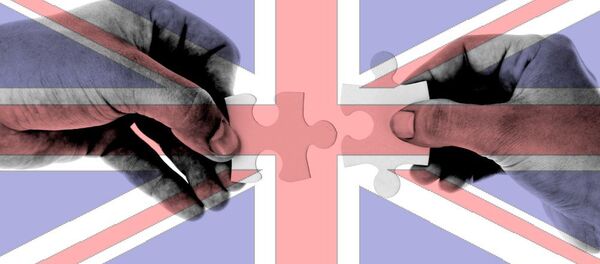The EU's credibility has been dealt a significant blow.
ECJ Advocate General Eleanor Sharpston says the EU-Singapore trade agreement can only be ratified by all 38 national and regional assemblies
— PeerPartners (@PeerStrategyEU) December 22, 2016
Eleanor Sharpston QC, an advocate general at the European Court of Justice (ECJ), has recommended that an EU trade deal with Singapore can only be finalized by the EU's member states, and not by EU institutions in Brussels acting alone.
Sharpston's opinion is not binding until the court issues its official judgment, which is expected in early 2017. However, the Luxembourg-based court follows the views of advocate generals in most cases.
The implications are enormous.
It means that any future EU deal could have to push through very muddied waters indeed. It would have to be approved by the multiple, diverse interests of 38 national and regional parliaments, at least five regional and linguistic parliaments in Belgium and at least five upper houses in Germany and Italy.
How then can other non-EU countries expect to have confidence in deals negotiated with EU bureaucrats in Brussels?
@layanglicana The future lies with nimble free trade economies, not the sclerotic bureaucracy of the EU run by yesterday's men.
— MartinSewell (@SewellMartin) December 15, 2016
Already, the advocate general's ruling on Singapore is being seen as a serious spanner in the works for the UK and it's impending Brexit.
The UK may now have to brace itself for an even more complex, more drawn-out affair than even pro-Remain campaigners anticipated.
In a year of sweeping nationalism and anti-EU sentiment across the bloc, such a ruling throws into sharp relief, one of the major failings of the EU project: indecision stymied by unwieldy bureaucracy.
Anti-EU politicians have been quick to take advantage.
The EU project is dead. The question is how long it will take for the whole thing to break up. pic.twitter.com/69f0cmJLsr
— Nigel Farage (@Nigel_Farage) December 20, 2016
Indeed, European officials have already been humiliated earlier this year. A much-vaunted trade deal with Canada, CETA, was almost entirely derailed when the tiny Belgian region of Wallonia rejected the terms. It sparked what some saw as a European constitutional crisis.

Such high farce could be a sign of things to come for British Prime Minister Theresa May.
Adv Gen opinion at ECJ makes it more likely UK-EU deal subject to (tortuous) "mixed argreement" sign-off process https://t.co/ulpWRGmiR7
— Oliver Ilott (@Oliver_ilott) December 21, 2016
Mrs. May has indicated that she intends to begin negotiations with the EU in March 2017. Some of her senior ministers have claimed that a deal would only take a couple of years.
This would seem highly unlikely if the European Court of Justice rules in favor of Sharpston's recommendation.






